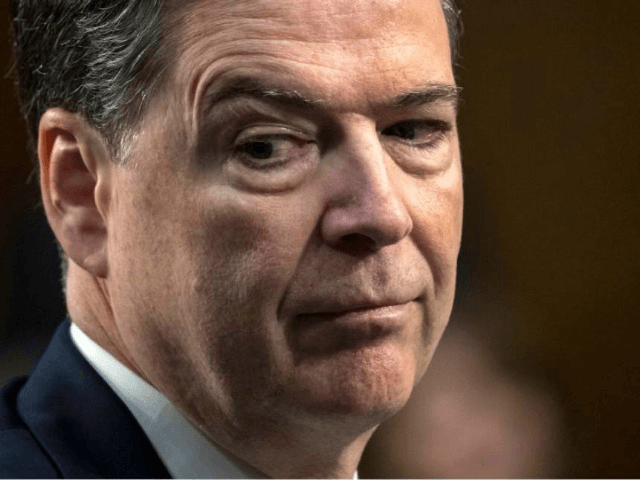U.S. District Judge James E. Boasberg has given us an important victory in our quest for the truth about former FBI Director James Comey and his infamous memos.
Boasberg ruled that the FBI must turn over to the court for in camera, non-public review of Comey’s memos allegedly detailing conversations he had with President Donald Trump.
The court, in seeking to review the documents, shows it does not trust the FBI or Justice Department’s representations about the memos. We hope now that Americans are one step closer to knowing the facts about these memos, which were written and leaked for pernicious purposes to target a sitting president with a criminal investigation. It’s high time they begin to see the light of day. We’re glad the court followed up on our specific suggestion that it review the documents directly.
The court order tells the government to turn over the Comey memos for review by January 18. In doing so, the court rejects arguments by the Sessions Justice Department to dismiss the lawsuits seeking the Comey information.
On June 16, 2017, we filed a Freedom of Information Act (FOIA) lawsuit for “ FBI Director James Comey’s February 14, 2017 memorandum … memorializing an Oval Office conversation he had with the President on that date regarding former National Security Advisor Michael Flynn.”
On September 7, 2017, we filed a related FOIA lawsuit on behalf of the Daily Caller News Foundation for “all unclassified memoranda authored by former FBI Director James Comey that contemporaneously memorialized his discussions with President Donald Trump and his aides.”
We recently made court filings on behalf the Daily Caller News Foundation and on behalf of Judicial Watch, requesting that the Justice Department be ordered to produce all of Comey’s unclassified memoranda about his one-on-one conversations with the president. We argued that “at a minimum, the Court should review the Comey Memos in camera to determine whether all responsive records have been located. This can be easily accomplished by comparing the memos to the very public testimony of Director Comey.”
The Justice Department previously argued to the court that Comey’s leak of the memo regarding former National Security Adviser Michael Flynn was unauthorized and compared it to WikiLeaks.
Comey admitted to Congress regarding the “Flynn” memo, “I asked a friend of mine to share the content of the memo with a reporter [for the New York Times] … I asked him to because I thought that might prompt the appointment of a special counsel.” The New York Times published a report about the memo on May 16, 2017. Special counsel Robert Mueller was appointed the following day.
Both Judicial Watch cases have been consolidated in Cable News Network, Inc., v. Federal Bureau of Investigation (No. 1:17-cv-01167).
The Comey leak was outrageous, leading to the appointment of an out-of-control, conflicted, and compromised Robert Mueller as special counsel. Let’s hope this initial court victory leads to the ultimate success of getting the full truth about Comey’s machination to target President Trump.

COMMENTS
Please let us know if you're having issues with commenting.